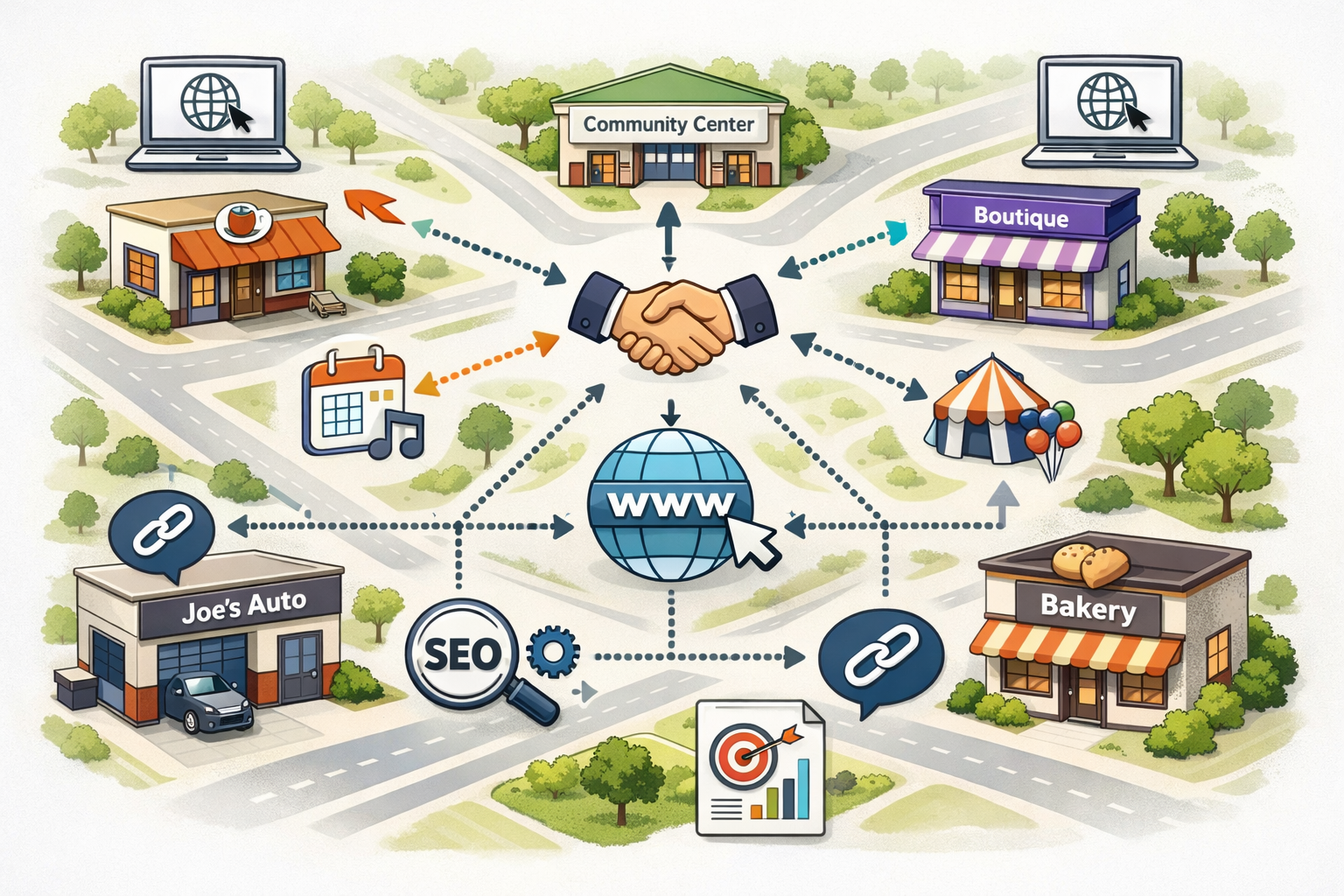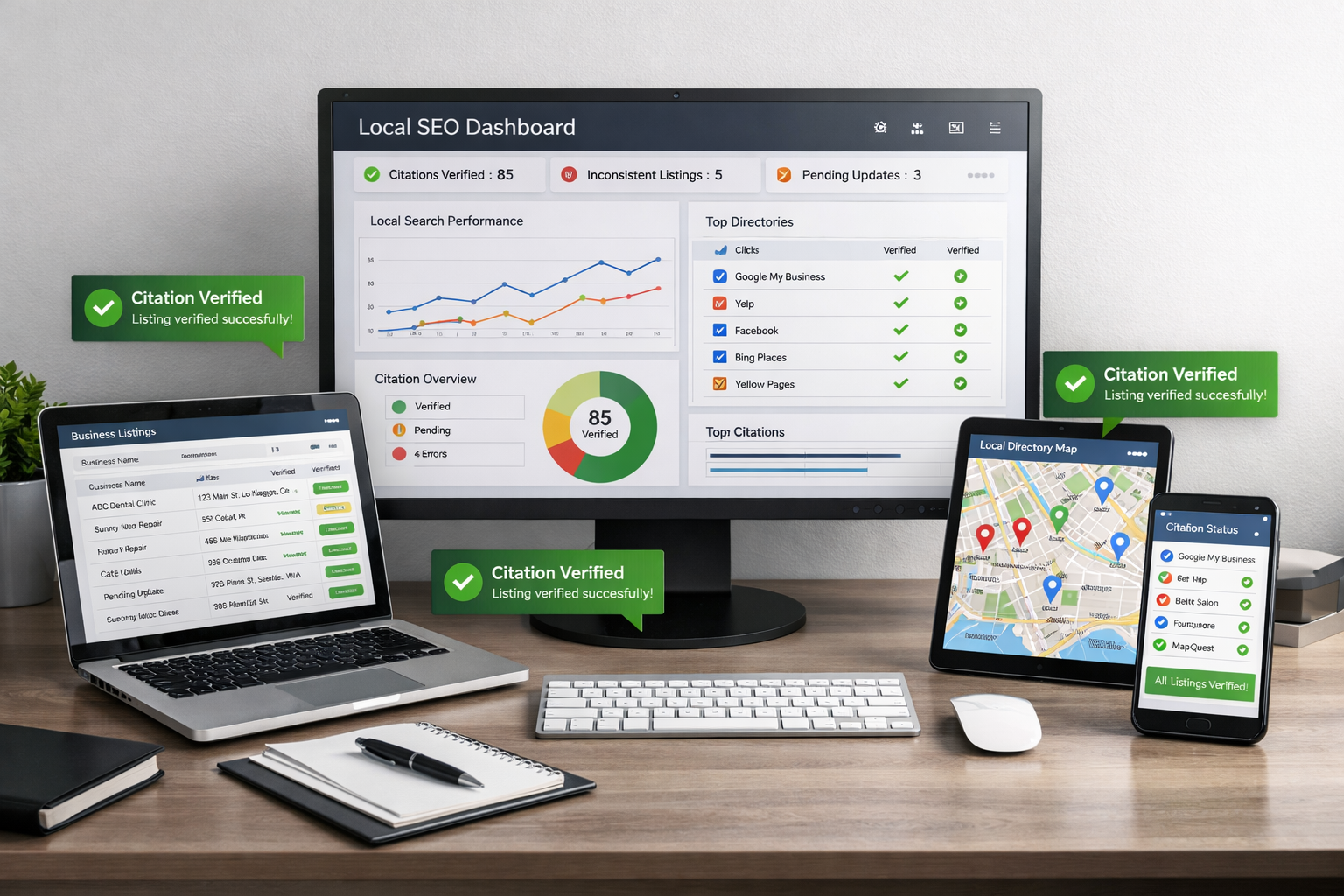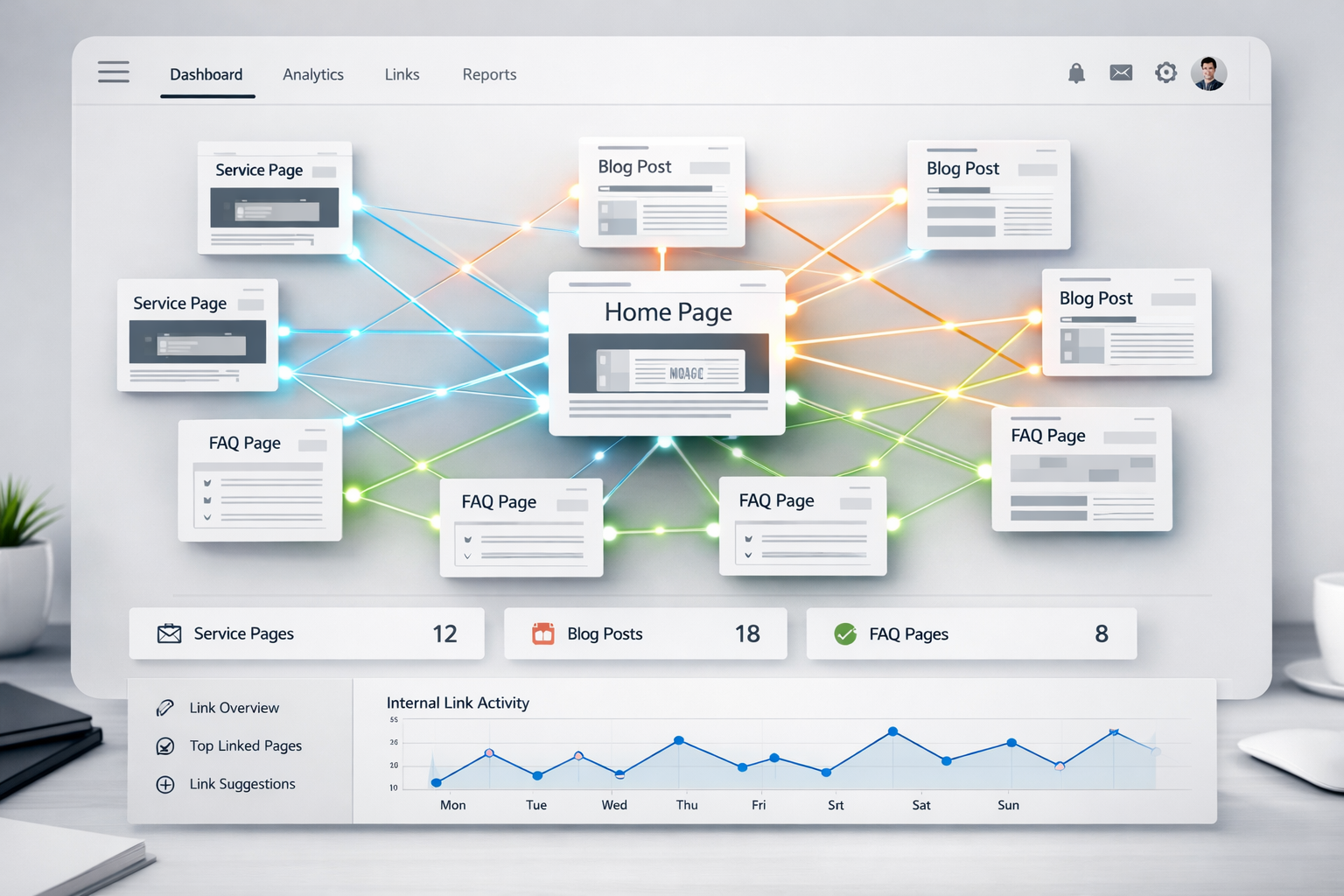How do citations and directory listings affect local SEO?
Local SEO success doesn’t just depend on keywords, backlinks, and Google reviews — it also relies on something less flashy but incredibly powerful: citations and directory listings. These are the backbone of your business’s online presence, helping search engines verify your legitimacy and improving your visibility in local search results.
Understanding Citations and Directory Listings
A citation is any mention of your business’s Name, Address, and Phone number (NAP) on the web. This could appear in business directories, social media profiles, or even on a chamber of commerce website.
Directory listings, meanwhile, are structured entries on websites like Yelp, YellowPages, or Google Business Profile that contain more detailed business information such as hours, website URL, and services offered.
- They reinforce the consistency of your business details across the web.
- They help customers easily find and contact you.
- They increase your visibility in Google’s “Local Pack” and Maps results.
Why Consistency Matters Most
- Lower your credibility in Google’s local ranking system.
- Lead to duplicate listings that dilute your authority.
- Create a poor user experience for potential customers.
The Role of Structured Data and Schema Markup
Structured data helps search engines interpret your information correctly. Adding schema markup to your website provides search engines with the same clarity that consistent citations offer across directories.
When your website uses LocalBusiness schema, it confirms essential information like your address, hours, and service area. This structured data works hand in hand with your external listings, reinforcing accuracy.
In short:
Citations tell Google
where you exist; schema markup tells Google
how to understand you.
Major Citation Sources You Should Prioritize
Here are the most impactful citation sources for U.S.-based businesses:
- Google Business Profile (GBP) – The cornerstone of local SEO.
- Apple Maps, Yelp, Bing Places – Widely used across devices.
- Facebook and LinkedIn – Important for both branding and discovery.
- Industry directories – Such as Avvo for lawyers, Healthgrades for doctors, or Houzz for contractors.
- Local directories – Like city chambers of commerce or community business networks.
Start with the top-tier ones first, then expand into industry and regional directories. Focus on quality over quantity — 30 accurate listings on reputable platforms outperform 100 on low-quality sites.
How Citations Influence Google’s Local Algorithm
Google’s local algorithm relies heavily on three main factors: Relevance, Distance, and Prominence. Citations directly support two of these — Relevance and Prominence.
Here’s how citations influence rankings:
- They act as “trust signals” verifying that your business exists at a specific location.
- They enhance the likelihood of appearing in Google’s
Local 3-Pack.
- They contribute to “prominence” by showing Google that other trusted websites vouch for your business’s existence.
Simply put, citations help search engines connect digital data with real-world entities.
Common Citation Mistakes to Avoid
- Inconsistent NAP – Using different phone numbers or addresses across listings.
- Duplicate listings – Creating multiple profiles for the same business.
- Outdated details – Failing to update hours, website URLs, or service areas.
- Ignoring niche directories – Missing out on high-value, industry-specific platforms.
The Impact of Reviews and Photos on Directory Performance
Enhanced listings with rich content tend to:
- Attract more clicks and engagement.
- Improve conversion rates from directory visitors.
- Increase trust signals for search engines.
Local Directories vs. National Directories
While national directories like Yelp or Foursquare help with broad visibility, local directories provide a different kind of SEO boost. They connect your business with your immediate geographic audience and are often crawled by Google’s local indexers.
- They target customers who are physically nearby.
- They improve your relevance for “near me” searches.
- They build local backlinks that enhance regional ranking power.
A balanced approach that includes both national and hyperlocal directories yields the best results.
Managing and Tracking Citations Over Time
Best practices for citation management:
- Conduct quarterly audits to spot inconsistencies.
- Use a citation management tool or hire a local SEO agency.
- Update information immediately after business changes.
- Monitor performance metrics such as visibility, rankings, and referral traffic.
Leveraging Citations for Competitive Advantage
Here’s how to turn citations into an advantage:
- Focus on niche directories your competitors overlook.
- Use enhanced listings with detailed descriptions and photos.
- Earn backlinks from local partners and directories.
- Keep reviews fresh and respond to them promptly.
Bringing It All Together
If you want to strengthen your local SEO and make sure your citations are optimized,
GetPhound can help. From auditing your listings to managing your entire local presence, our team ensures your business gets found — and trusted — where it matters most.











